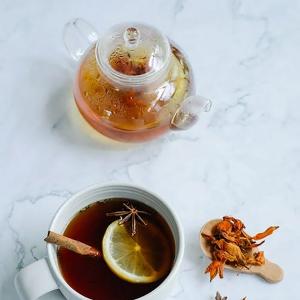Replace leafy vegetables such as spinach and lettuce with sprouts, cucumber and Vitamin C rich fruits in your daily diet, suggests Dr Manoj Kutteri, wellness director, Atmantan Wellness Centre.

Indian monsoons are widely known for seasonal wind shift and a variety of changes in the food patterns.
Along with the earthy smell and food cravings, monsoons are also infamous for infectious diseases and disorders related to the gut.
According to Ayurveda science, the sudden onset of changes in temperature and humidity before monsoon weakens our digestive system and lead to many digestive disorders including bloating, constipation, gas, acidity and indigestion.
Due to the drop in temperatures combined with humidity, the vata dosha. According to Ayurveda, a person's health is based on the balance of doshas featuring a combination of five elements, namely air, earth, space, water, and fire is aggravated and the body accumulates pitta.
It is very important to improve gut health as there is vitiation of pitta dosha during this period.
Food and lifestyle habits to include during monsoon:
Many greens that are regular to our table need to take a back seat during monsoon.
However, we can compensate our nutrient requirements with the below gourd variety of vegetables and other veggies
1. Pointed gourd
Also known as parwal, it's rich in vitamin A and C. It is also a good source of calcium which is required more in the monsoon season due to the in availability of sunlight.
2. Indian squash (tinda)
Rich in minerals such as potassium, manganese and magnesium, it's also very hydrating in nature.
3. Bottle guard (lauki)
It has soluble and insoluble fibre making it healthy for the digestive tract. The antioxidant and alkalising action of it are also well noted.
4. Bitter gourd (karela)
Enriched with Vitamin C it helps build immunity and it also has anti-viral properties.
5. Teasel gourd (kantola)
It's rich in protein, iron and fibre. It is also a good source of flavonoids.
6. Ladies finger (okra)
Okra contains many vitamins and minerals such as folate, magnesium, Vitamin A, C, K and B6 and hence a highly recommended diet for preventing and treating diabetes, cardiovascular issues, cancers and stroke.
7. Cucumber
It is one of the best low calorie and healthy snacks for the monsoon.
The various antioxidants such as beta carotene in cucumbers can help to fight against free radicals in our body.
Cucumber is also useful in treating skin problems and allergies as well.
8. Avoid common greens
Green leafy vegetables such as spinach, lettuce should be avoided during the monsoon as they are prone to bacterial infections.
If you still want to consume it, it's best to soak it in salt and turmeric for 30 minutes and then cook it. This way we can eliminate the risk of any contamination.
9. Consume smoothies along with monsoon specific herbs
Smoothies that can be consumed during monsoons include pumpkin and coconut milk smoothie which helps to keep any monsoon flus away.
Pumpkin contains vitamin A and C, coconut milk contains medium chain saturated fatty acids in particular lauric acid, which contains monolaurin- an antiviral and antibacterial compound.
When this smoothie is consumed with black pepper, ginger and a little bit of garlic extract it acts as a great defence against temperature fluctuations in the monsoon.
10. Add Vitamin C in your diet
Increased intake of Vitamin C helps to prepare our immune system to fight against the monsoon bacteria and viruses.
Eat sprouts, monsoon-friendly green vegetables and Vitamin C rich fruits to your daily diet.
Fruits such as apples, jamuns, litchi, plums, cherries, peaches, papayas, pear and pomegranate can also be added to the diet for improving immunity.
These local and seasonal produce fruits are best inclusions in your diet. One must also avoid summer fruits such as musk melon, water melon and cantaloupes etc.
11. Add plenty of probiotics to support your gut health
Make it a point to increase your intake of probiotic foods such as yoghurt, buttermilk, Kimchi, Kombucha and homemade pickled vegetables.
Besides these one can also look for fermented rice water, fermented aloe vera preparation etc.
Avoid unhealthy, unhygienic and junk foods
Oily, spicy and salty foods are to be totally avoided during monsoon, as this will make it hard for digestion resulting in bloating and also water retention.
During the monsoon period we are prone to develop food born infections, one has to stay away from unhygienic food and drinks.
Junk eating and untimely eating can make the digestive system further sluggish.
Poor eating and lack of exercise can further upset the microbiome of our gut and impact all bodily functions.
Nausea, vomiting and stomach pain are common in monsoon owing to the consumption of poorly handled roadside food and water.
Drink plenty of warm water
This will help flush out toxins from your system. Drinking water can also help boost our digestive system.
One can also drink herbal teas made out of monsoon specific herbs such as ginger, clove, garlic, cumin seeds, fennel seeds, ajwain, lime etc.
Water is a universal dissolvent which helps to dilute the toxins and to flush them out of our body.
Natural and herbal teas such as lemon, ginger and green tea have anti-bacterial properties. They keep your body immune, soothe your sore throat and fight other body disorders.
An Ayurvedic herbal tea made by adding a pinch of mulethi, pepper, long pepper and ginger is ideal to consume. It also helps to improve digestion.
Ensure sound sleep
Sleep is one of the critical factor in determining our immunity.
These days we have disrupted the body’s biological clock with unusual bed timings and poor lifestyle habits which has ruined our natural ability to fight infections.
The start of the day must begin with mild stretches and some warm up practices such as yoga or cardio exercises.
Exercises not only helps to keep the body active and warm, but also in reducing weight and trigger your immune system against various infectious agents.
Practice personal hygiene
Personal hygiene and also cleanliness of your surrounding are two other important factors that helps you to stay healthy during monsoon.
Wash your hands carefully before you eat something when you are away from home and after you come back home.
Practicing good hand hygiene kills almost all microbes that might accidentally enter into your digestive tract and disrupts the gut flora.
Monsoon is also a time we see development of molds in our surroundings and cleanliness around us is also equally important.
Eat light
Foods that are heavy for digestion can lead to imbalance in our digestion and alter the gut microbiome.
Hence, it is recommended to avoid foods that are too heavy, oily, deep fried, spicy and acidic in nature as they lead to vata and pitta imbalance in the body.
Instead eat foods that are good for digestion and help your overall health including honey, wheat, soup made of pulses, spiced buttermilk etc.
Some of the easily digestible spices during monsoon are garlic, asafetida, pepper, ginger, turmeric, cumin and coriander. They also provide excellent nutrition.
Dr Manoj Kutteri has a doctorate degree in health sciences from the United States along with an MBA. He has over 20 years of experience in the wellness industry with knowledge in mind-body medicine, along with a forte in naturopathy, Ayurveda, nutrition, acupuncture, yoga and physical culture and psychology.
Disclaimer: All content and media herein is written and published online for informational purposes only. It is not a substitute for professional medical advice. It should not be relied on as your only source for advice.
Please always seek the guidance of your doctor or a qualified health professional with any questions you may have regarding your health or a medical condition. Do not ever disregard the advice of a medical professional, or delay in seeking it because of something you have read herein.
If you believe you may have a medical or mental health emergency, please call your doctor, go to the nearest hospital, or call emergency services or emergency helplines immediately. If you choose to rely on any information provided herein, you do so solely at your own risk.
Opinions expressed herein cannot necessarily provide advice to fit the exact specifics of the issues of the person requesting advice.










